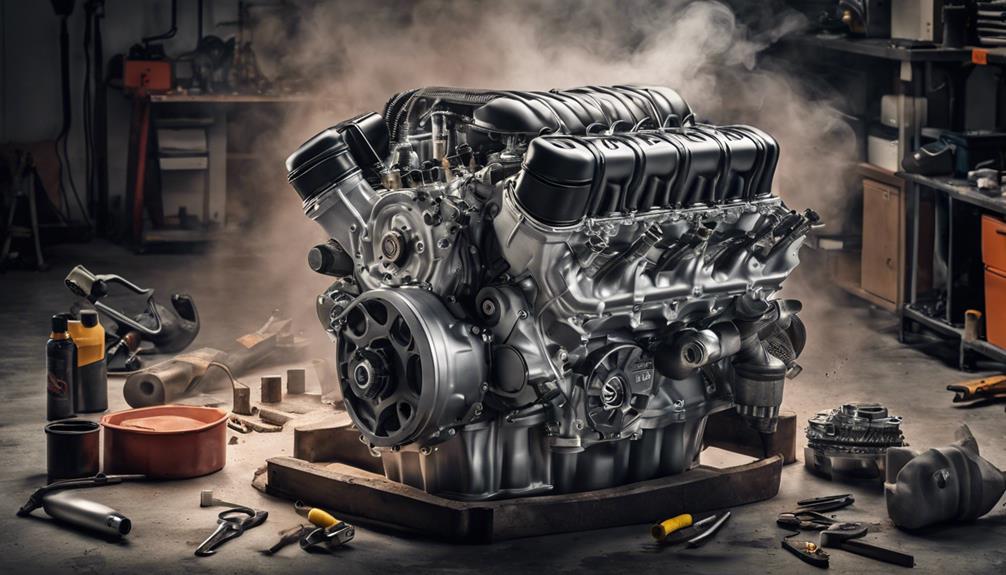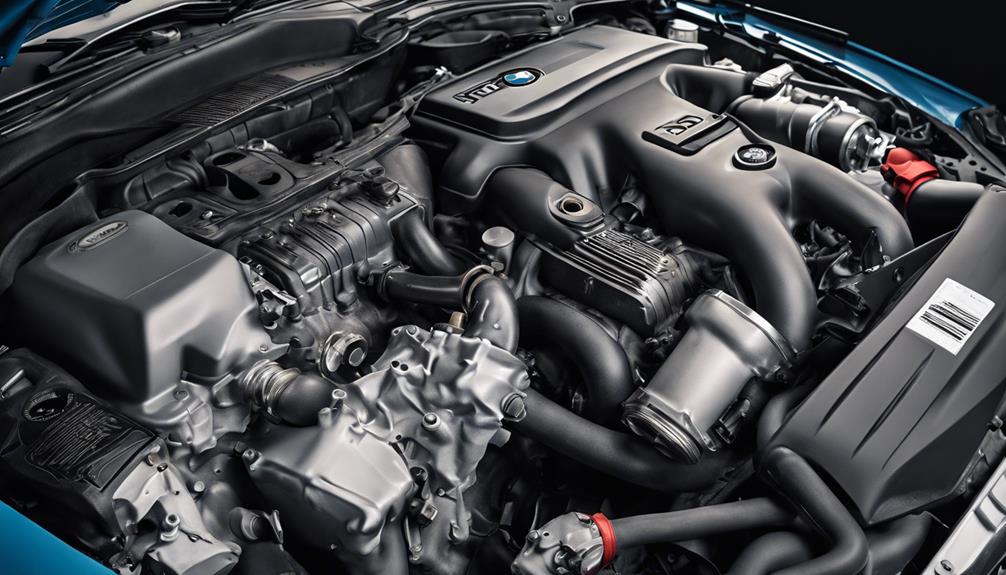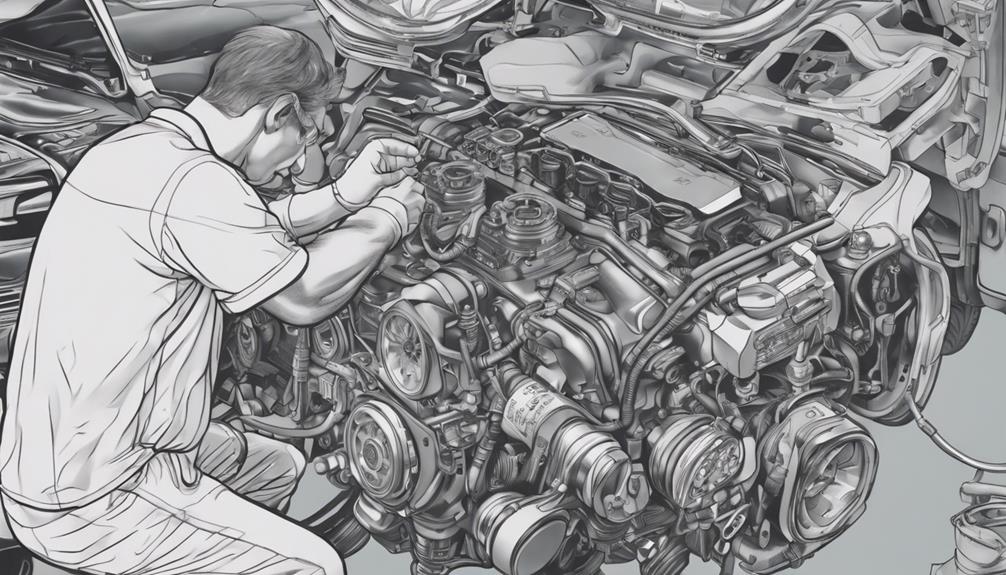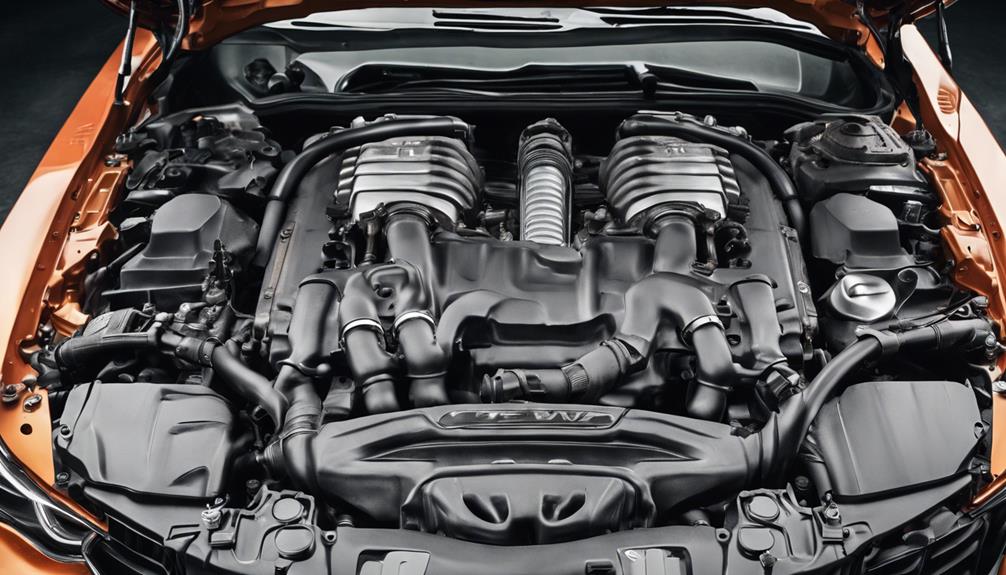If you're facing electrical issues with your BMW 3 Series, such as ignition problems, alternator malfunctions, cable wear concerns, or battery troubleshooting, it can disrupt your driving experience. Ignition issues could arise from steering column or computer defects, while alternator malfunctions might lead to dimming lights and electrical failures. Checking for cable wear and monitoring your battery for degradation are important steps to prevent stalling. Seeking assistance from a BMW dealership for an accurate diagnosis can guarantee effective solutions. Remember, proper maintenance is crucial to keeping your BMW's electrical system running smoothly.
Key Takeaways
- Address common ignition issues promptly to prevent stalling.
- Recognize symptoms of alternator malfunctions like dimming lights.
- Regularly inspect cables for wear to avoid electrical system problems.
- Thoroughly examine battery for degradation or corrosion.
- Implement maintenance tips to ensure top condition of electrical system.
Common Ignition Problems

If you own a BMW 3 Series, you may encounter common ignition problems that impede the key from turning in the traditional ignition system. These electrical issues can manifest through the steering lock symbol illuminating, signaling potential defects in the steering column or computer that affect the ignition process. When faced with such problems, it's important to address them promptly to prevent further complications like vehicle stalling and inoperability.
Seeking assistance from a BMW dealership is advisable when dealing with these ignition challenges. Their specialized knowledge can guarantee an accurate diagnosis and effective repair of the faulty components. Ignition problems in BMWs have the potential to worsen over time, possibly resulting in a complete failure of the key turning mechanism. By addressing these common issues early on, you can avoid being stranded due to an unresponsive ignition system, fostering a sense of security and belonging within the BMW community.
Alternator Malfunctions
Facing alternator malfunctions in your BMW 3 Series can lead to issues with the heating and cooling systems, often evidenced by symptoms such as dimming lights and electrical failures in the vehicle. When encountering alternator problems, addressing them promptly is essential to avoid further complications. Replacing the alternator is a common solution to resolve electrical malfunctions in BMW 3 Series. In some cases, replacing the alternator belt may also be necessary to guarantee proper function. Seeking assistance from a BMW dealership is recommended for diagnosing and addressing alternator issues effectively.
| Common Symptoms of Alternator Malfunctions | Solutions |
|---|---|
| Dimming lights while driving | Replace the alternator |
| Electrical failures in the vehicle | Replace the alternator belt if needed |
| Strange noises coming from the engine area | Seek assistance from a BMW dealership |
Cable Wear Issues
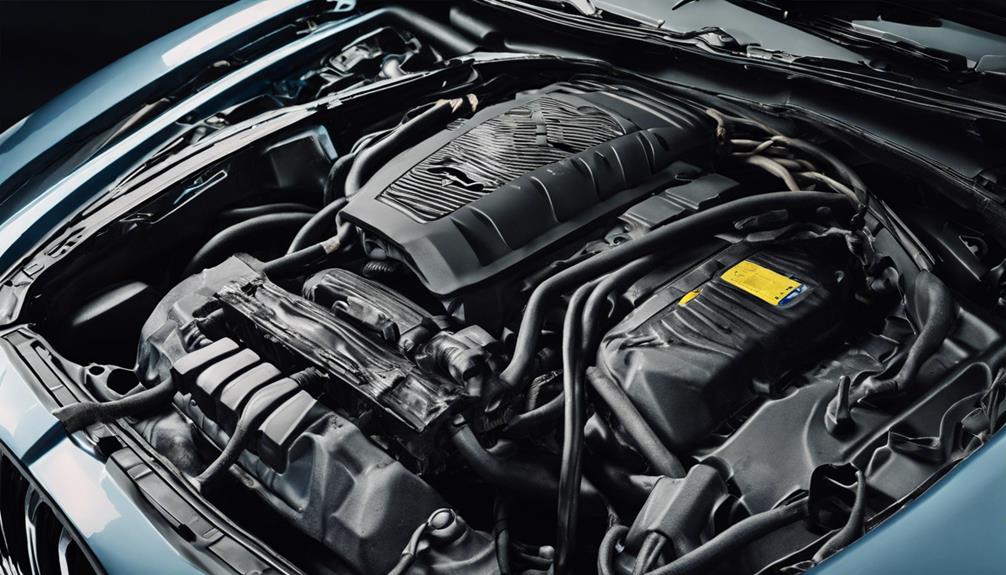
Cable wear issues in BMWs pose a significant risk to the vehicle's electrical system performance, often resulting from overlooked maintenance concerns. These problems can lead to a range of electrical malfunctions, impacting critical components like the ignition system. Detecting cable damage is essential when troubleshooting electrical problems in BMW 3 Series vehicles to prevent costly repairs.
- Regular Inspection: Periodically checking the condition of cables can help identify wear and tear early on, allowing for timely replacements and preventing potential electrical issues in your BMW 3 Series.
- Proper Maintenance: Ensuring that cables are properly secured and insulated can help prevent friction and damage, preserving the integrity of the electrical system in your BMW 3 Series.
- Timely Replacement: When signs of wear are observed, promptly replacing damaged cables with high-quality alternatives can safeguard the electrical performance of your BMW 3 Series and prevent further complications.
Battery Troubleshooting
When troubleshooting battery issues in your BMW 3 Series, thoroughly examining for degradation or corrosion is essential to guarantee peak electrical performance. One common electrical problem in BMWs is related to the positive battery cable connector. Loss of electrical power can lead to vehicle stalling, impacting the operation of your BMW 3 Series. Ignoring these issues can result in the key failing to turn in the ignition, with the steering lock symbol illuminated. Defective steering columns or computer malfunctions are often the culprits behind ignition problems. It is vital to promptly address any electrical problems to prevent your vehicle from becoming inoperable.
| Battery Troubleshooting |
|---|
| Thoroughly inspect for degradation or corrosion |
| Check the positive battery cable connector |
| Address any loss of electrical power promptly |
| Watch out for stalling issues |
| Investigate key ignition problems with caution |
Maintenance Tips for Electrical Problems
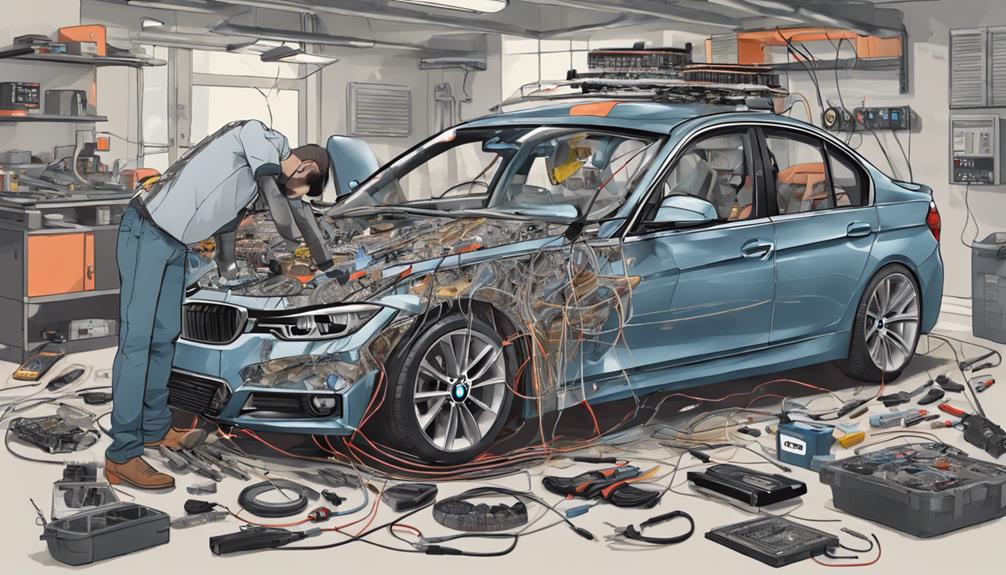
To maintain excellent electrical performance in your BMW 3 Series, regularly implementing maintenance tips is essential to prevent potential issues. Here are three critical steps to ensure your vehicle's electrical system remains in top condition:
- Inspect Battery Connectors and Fuse Box Terminals: Regularly checking for corrosion on the battery connectors and fuse box terminals can help prevent electrical issues in your BMW 3 Series. Clean any build-up to ensure a secure connection and ideal electrical flow.
- Address Battery Drain from External Devices: Be mindful of any external devices that may drain your battery power. Disconnect or charge these devices separately to avoid any strain on the electrical system of your BMW 3 Series.
- Monitor Alternator Efficiency: Ensure that your alternator effectively charges the battery while the vehicle is in motion. A properly functioning alternator is crucial for preventing starting issues and maintaining the electrical health of your BMW 3 Series.
Frequently Asked Questions
What Is the Most Common Problem With BMW 3 Series?
The most common problem with BMW 3 Series is electrical issues, like battery degradation or corrosion. Loss of power can cause stalling. An illuminated steering lock symbol and a stuck key signal this issue. Defective steering columns or computer malfunctions are likely causes. Addressing these promptly is essential.
Are BMW Known for Electrical Problems?
Yes, BMWs are known for electrical problems. Regular maintenance is key to prevent issues like battery degradation and stalling. Addressing these promptly is essential to avoid vehicle inoperability. Stay on top of inspections for a smooth ride.
What Years of the BMW 3 Series to Avoid?
Steer clear of BMW 3 Series models from 2006 to 2011, especially the 2007 BMW 335i, due to potential electrical and engine troubles. Opt for newer models for improved reliability. Prioritize inspections and maintenance for used BMW 3 Series to prevent issues.
How Much Is an Electrical Diagnostic Bmw?
Getting an electrical diagnostic for your BMW can range from $100 to $200. Prices vary based on location and repair facility. The fee covers expertise to pinpoint issues accurately. Some places offer it free with repair.
Conclusion
To sum up, BMW 3 Series owners should be attentive to typical electrical problems such as ignition issues, alternator malfunctions, cable wear, and battery troubleshooting.
By remaining proactive with regular maintenance checks and addressing any warning signs promptly, drivers can prevent costly repairs and guarantee the longevity of their vehicle's electrical system.
Remember to consult a professional mechanic for any persistent or intricate electrical issues to keep your BMW running smoothly.






